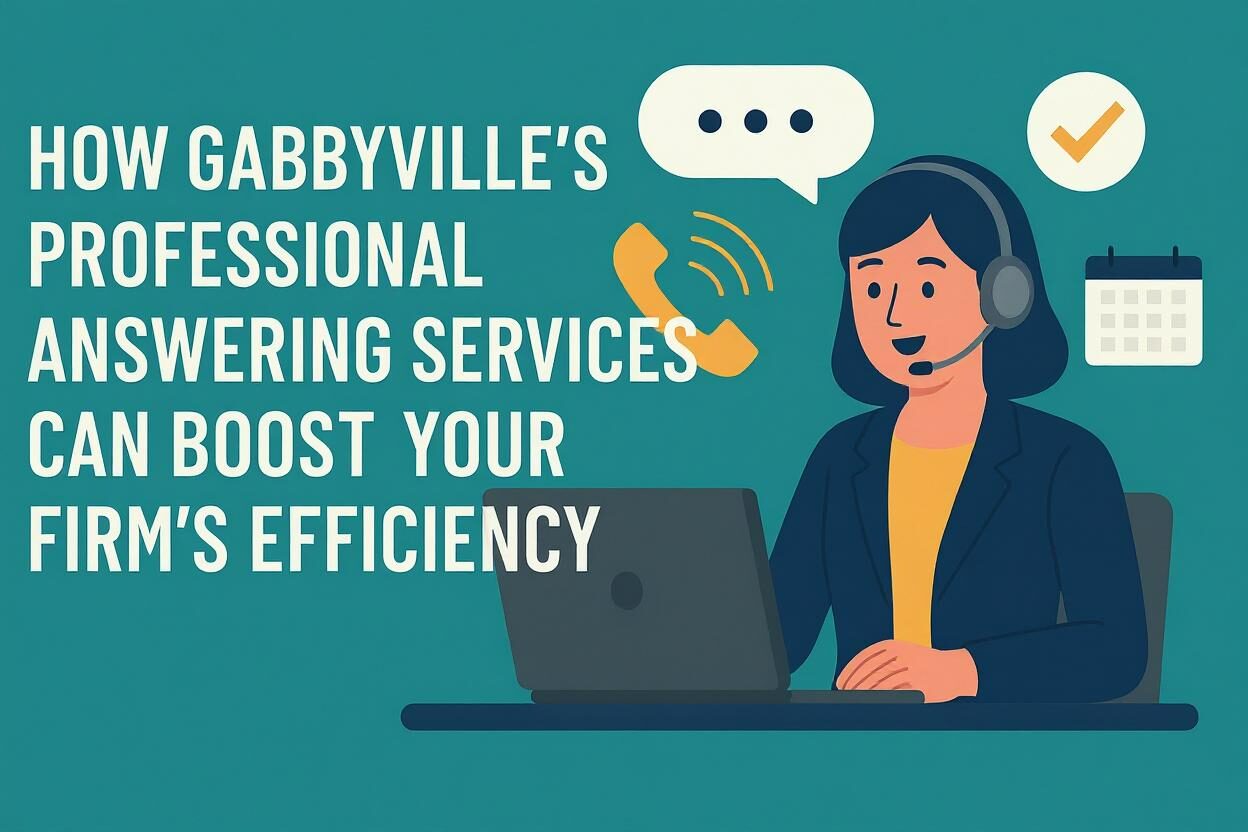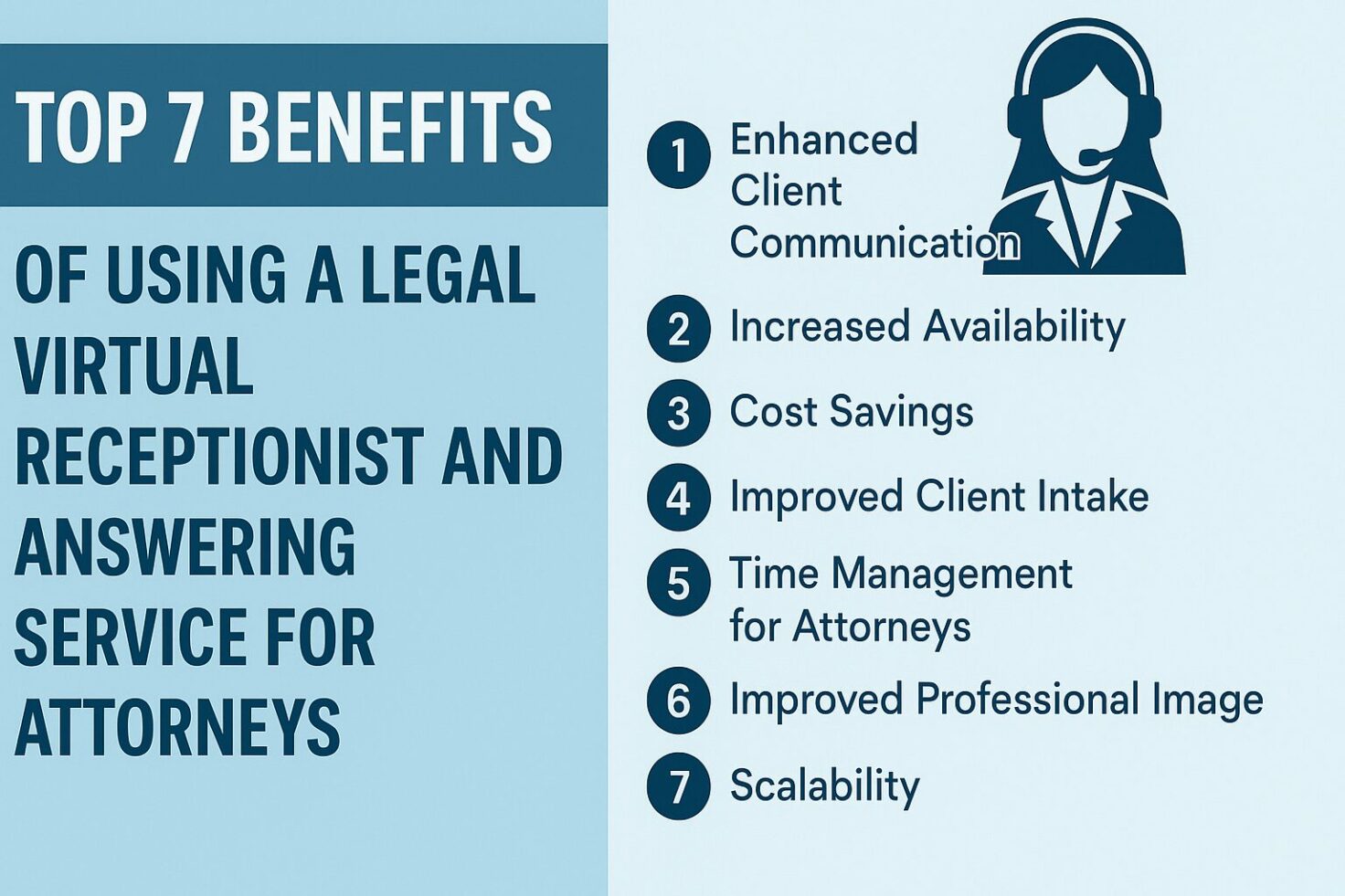In today’s fast-paced business environment, missing a call can mean missing an opportunity. Whether you’re a solopreneur juggling multiple tasks or a growing company looking to enhance customer service, having a reliable phone answering service can be a game-changer. But with so many options available, how do you choose the best phone answering service for your unique needs?
This comprehensive guide will walk you through everything you need to know, from understanding the benefits of a phone answering service to providing professional call answering tips and guiding you on how to choose a virtual receptionist that perfectly aligns with your business goals.
Why Your Business Needs a Phone Answering Service
Before diving into the selection process, let’s understand why investing in a phone answering service is a smart move for businesses of all sizes:
- Never Miss a Call: Ensure that every potential customer or important contact is greeted professionally, even when you’re unavailable, in meetings, or after business hours.
- Improved Customer Experience: A live, friendly voice answering the phone creates a positive first impression and enhances customer satisfaction.
- Increased Efficiency: Free up your time and your team’s time from handling routine calls, allowing you to focus on core business activities.
- Enhanced Professionalism: A dedicated answering service projects a polished and professional image, regardless of your business size.
- Cost-Effective Solution: Often more affordable than hiring a full-time receptionist, especially for small businesses and startups.
- 24/7 Availability: Many answering services offer round-the-clock coverage, ensuring your business is always reachable.
- Scalability: As your business grows, your answering service can easily adapt to handle increased call volume.
- Lead Capture: Ensure that you capture all potential leads by having a system in place to gather necessary information from incoming calls.
Key Considerations When Choosing a Phone Answering Service
Selecting the right phone answering service requires careful evaluation of several factors. Here’s a detailed breakdown of what you should consider:
1. Identify Your Specific Needs
Before you start researching providers, take the time to understand your business’s unique requirements. Ask yourself:
- What are your typical call volumes and patterns? Do you experience peak hours?
- What type of information do you need the answering service to handle? Basic message taking, call transferring, appointment scheduling, order taking, or customer support?
- What are your desired hours of coverage? Do you need 24/7 support, after-hours coverage, or support during specific times?
- What level of integration do you need with your existing systems? CRM integration, appointment scheduling software, etc.?
- What is your budget for a phone answering service?
Answering these questions will help you narrow down your options and focus on providers that offer the services you truly need.
2. Evaluate the Service Features
Different answering services offer a range of features. Consider the following:
- Live Answering: Ensure the service provides real human operators, not just automated systems.
- Customizable Greetings and Scripts: The ability to tailor how your calls are answered to reflect your brand and specific instructions.
- Call Screening and Routing: Options to screen calls and route them to the appropriate person or department.
- Message Taking and Delivery: Various methods for receiving messages, such as email, SMS, or through a dedicated online portal.
- Voicemail Services: Professional voicemail setup and management.
- Call Patching and Transferring: The ability for operators to transfer calls seamlessly to your phone or other designated numbers.
- Appointment Scheduling: Integration with calendar systems to book, reschedule, and cancel appointments.
- Order Taking: Processing customer orders over the phone.
- Bilingual Support: If your customer base is diverse, consider a service with bilingual operators.
- Integration Capabilities: Compatibility with your CRM, calendar apps, and other business tools.
- Reporting and Analytics: Access to call logs, message history, and other data to track performance.
Prioritize the features that are most critical to your business operations and customer service goals.
3. Assess the Quality of Customer Service
The answering service will be an extension of your business, so their customer service is paramount. Consider the following:
- Operator Training and Professionalism: Are the operators well-trained, courteous, and knowledgeable?
- Call Handling Efficiency: How quickly and accurately do they handle calls?
- Communication Skills: Are they clear, concise, and able to represent your brand effectively?
- Responsiveness to Your Needs: How responsive is the provider to your inquiries and support requests?
Look for testimonials, reviews, and consider requesting a trial or demonstration to assess the quality of their service firsthand.
4. Consider the Technology and Platform
The technology used by the answering service can significantly impact its reliability and ease of use. Look for:
- User-Friendly Interface: If they offer an online portal or app, ensure it’s intuitive and easy to navigate.
- Reliable Call Handling Systems: A robust infrastructure to ensure calls are answered promptly and without technical issues.
- Security and Privacy: Measures to protect your data and customer information.
- Mobile Accessibility: The ability to manage your account and messages on the go.
5. Evaluate Pricing and Plans
Answering services offer various pricing models, including per-minute, per-call, and flat-rate plans. Consider:
- Your Estimated Call Volume: Choose a plan that aligns with your anticipated usage to avoid overpaying or exceeding limits.
- Included Features: Understand what’s included in each plan and any potential extra charges.
- Contract Terms: Review the contract length and cancellation policies.
- Scalability of Plans: Ensure the provider offers plans that can accommodate your future growth.
Compare the pricing structures of different providers and choose a plan that offers the best value for your specific needs.
Professional Call Answering Tips to Share with Your Chosen Service
Once you’ve selected a phone answering service, providing them with clear guidelines and professional call answering tips will ensure they represent your business effectively:
- Provide Detailed Scripts: Create clear and concise scripts for different call scenarios, including greetings, information gathering, and message taking.
- Share FAQs and Key Information: Equip the operators with answers to frequently asked questions about your products, services, and business hours.
- Outline Call Handling Procedures: Specify how different types of calls should be handled (e.g., urgent calls, sales inquiries, customer support).
- Define Escalation Processes: Clearly outline how and when calls should be escalated to you or your team.
- Provide Contact Information: Ensure they have up-to-date contact details for relevant personnel.
- Offer Regular Feedback: Provide constructive feedback on their call handling to ensure continuous improvement.
- Keep Them Informed: Update them on any changes to your business operations, promotions, or important announcements.
- Emphasize Professionalism: Remind them to always answer calls in a polite, professional, and friendly manner, representing your brand positively.
- Specify Data Collection Requirements: If they are taking orders or gathering leads, provide clear instructions on the information they need to collect.
How to Choose a Virtual Receptionist: Key Differences and Considerations
While often used interchangeably, “phone answering service” and “virtual receptionist” can have subtle differences. A virtual receptionist typically offers a more comprehensive range of services beyond just answering calls, often acting as an extension of your in-house team. When considering how to choose a virtual receptionist, keep the following in mind:
- Scope of Services: Virtual receptionists often handle tasks like appointment scheduling, managing calendars, filtering spam calls, providing basic customer support, and even outbound calling.
- Level of Integration: They may integrate more deeply with your business systems and processes.
- Personalization: Virtual receptionist services often focus on providing a more personalized and seamless experience for your callers.
- Dedicated Receptionist vs. Shared Pool: Some virtual receptionist services assign a dedicated receptionist to your account, allowing for a deeper understanding of your business.
- Cost: Virtual receptionist services may have different pricing structures reflecting the broader range of services offered.
When deciding between a phone answering service and a virtual receptionist, carefully consider the level of support you need and the tasks you want to delegate. If you require more than just basic call answering, a virtual receptionist might be the best phone answering service solution for your business.
Conclusion: Investing in Professional Call Management
Choosing the best phone answering service is a crucial decision that can significantly impact your business’s efficiency, customer satisfaction, and overall professionalism. By carefully evaluating your needs, assessing service features, considering customer service quality, and understanding the nuances of how to choose a virtual receptionist, you can find a partner that perfectly complements your business operations. Remember to provide clear guidelines and professional call answering tips to ensure they represent your brand effectively. Investing in professional call management is an investment in your business’s success.Sources and related content










